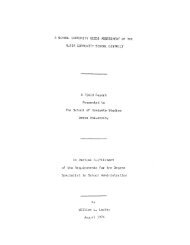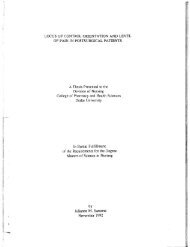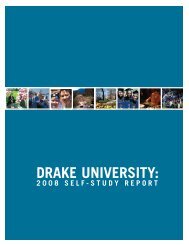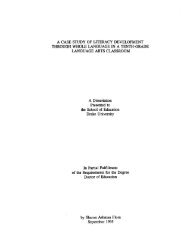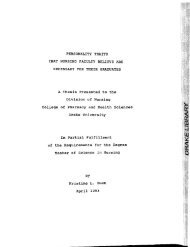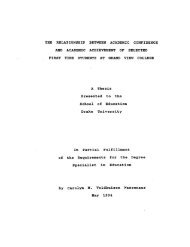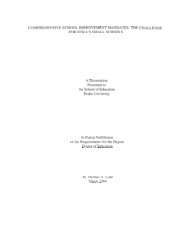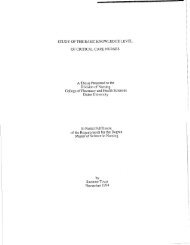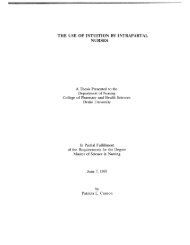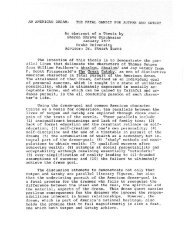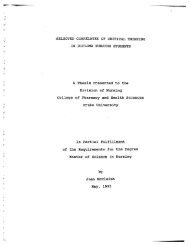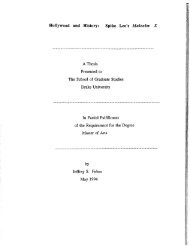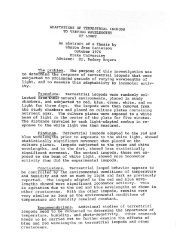LEADERSHIP CHARACTERISTICS OF ... - Drake University
LEADERSHIP CHARACTERISTICS OF ... - Drake University
LEADERSHIP CHARACTERISTICS OF ... - Drake University
You also want an ePaper? Increase the reach of your titles
YUMPU automatically turns print PDFs into web optimized ePapers that Google loves.
ealization of self interests and the greater good of the organization and<br />
society.<br />
Transformational LeadershipTheory<br />
Transformational leadership differentiates itself from previous<br />
theories in its focus on alignment to a greater good. It seeks to engage<br />
the follower in activities out of a sense of commitment to self, organization,<br />
and a process that will lead to some greater social outcome.<br />
Transformational leaders elevate the morality and motivation of both the<br />
leader and the follower (MacGregor Burns, 2003).<br />
While transactional leadership is said to be a reciprocal exchange,<br />
it is believed that transformational leaders "engage in interactions with<br />
followers based on common values, beliefs and goals" (MacGregor Burns,<br />
2003 p. 25). This encourages extraordinary performance which results in<br />
goal attainment. Transformational leaders experience relationships with<br />
others as mutually elevating and beneficial. Bass suggested that the<br />
transformational leader "attempts to induce followers to reorder their<br />
needs by transcending self interests and strive for higher order needs"<br />
(MacGregor Burns, 2003, p.134). These appear to be the same higher<br />
order needs that Maslow (1954) addressed when he posited that people<br />
are motivated by higher order needs after lower order needs are satisfied.<br />
Transformational leadership is a process that changes and<br />
transforms individuals, organizations, and cultures. The transformational<br />
24



